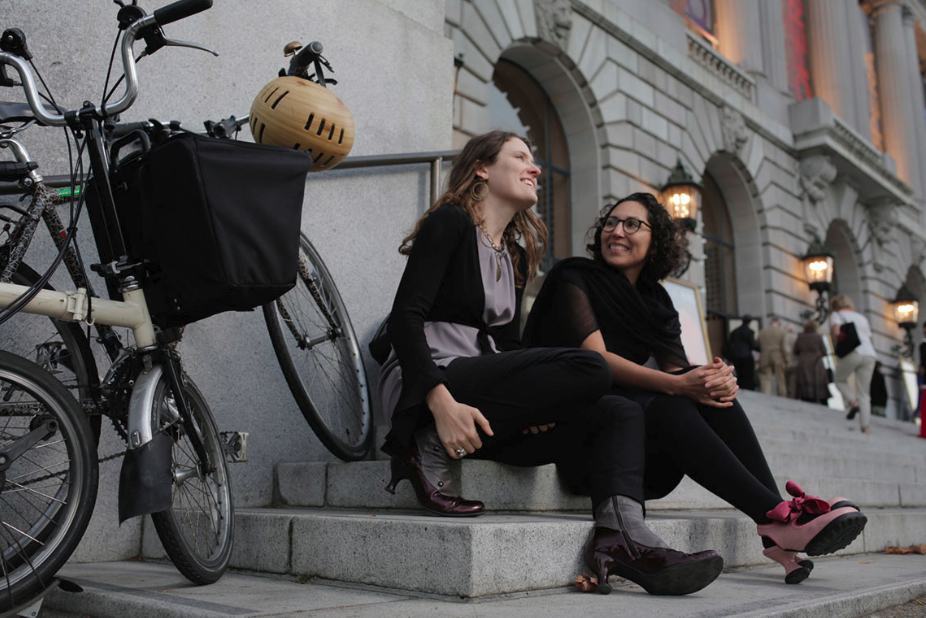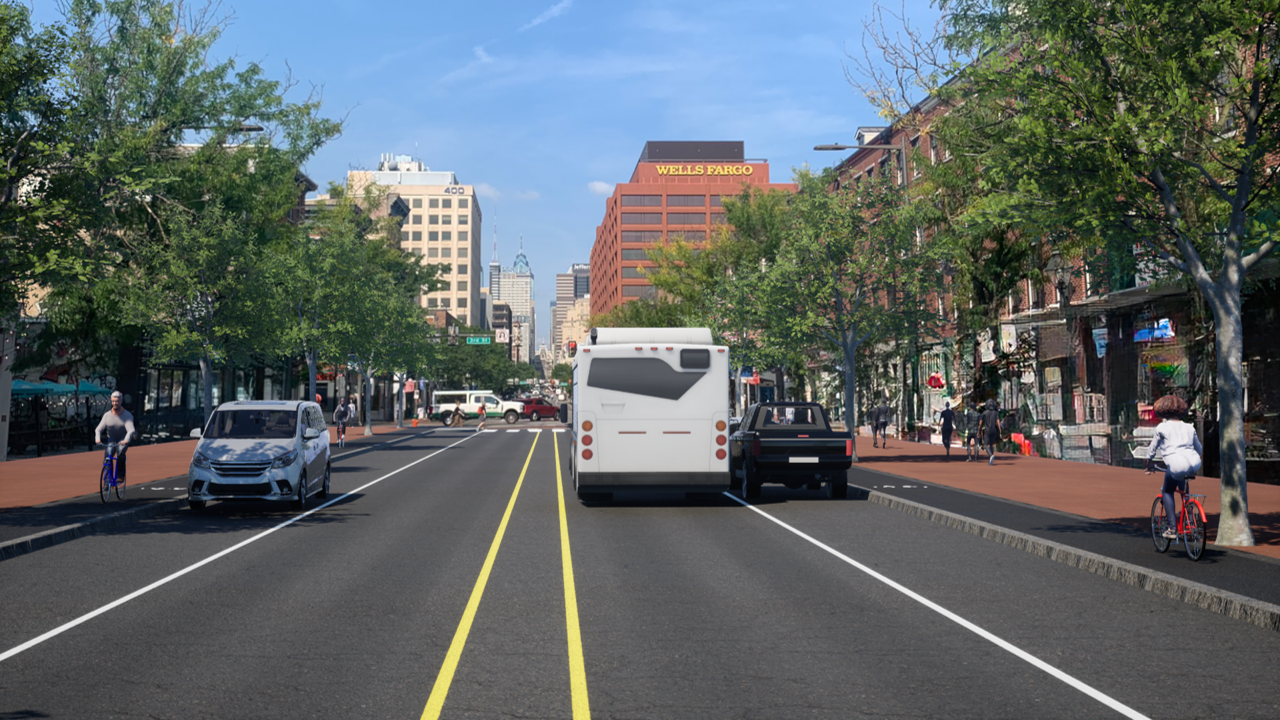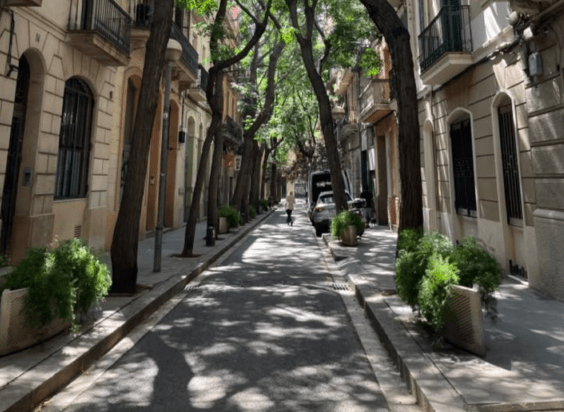Note: GJEL Accident Attorneys regularly sponsors coverage on Streetsblog San Francisco and Streetsblog California. Unless noted in the story, GJEL Accident Attorneys is not consulted for the content or editorial direction of the sponsored content.
The 4th annual Urban Film Festival, which runs through this coming Sunday, kicked off this afternoon with three documentary shorts, Stylish Spokes, We Are In Crisis, and Mama Agatha. The screening was held at the Google Community Space on the Embarcadero and was followed by a panel discussion on the challenges of getting more women and families cycling.
Spokes featured a montage of women cycling happily through San Francisco on the way to the opera. The movie showed women cycling in stylish clothing and high-heel shoes, smiling while they ride, and chatting with friends. It contrasted that with a motorist stewing in traffic, growing increasingly frustrated with her snail's pace, and watching cyclists scoot past.
Stylish Spokes was written by Claire Bonham Carter and directed by Greg Miller and is meant to show that women can still be stylish and fashionable while riding a bike. "The most prominent issue that she hears from women on why they don’t ride bikes," said Miller, who was part of the panel discussion,"is that they can’t dress up."
Lisa Fisher, an Urban Planner with the SF Planning Department, said San Francisco infrastructure has to get to the point that people don't feel a need to wear helmets--and deal with helmet hair. "That will open a whole new group of cyclists, many women see that as a barrier."
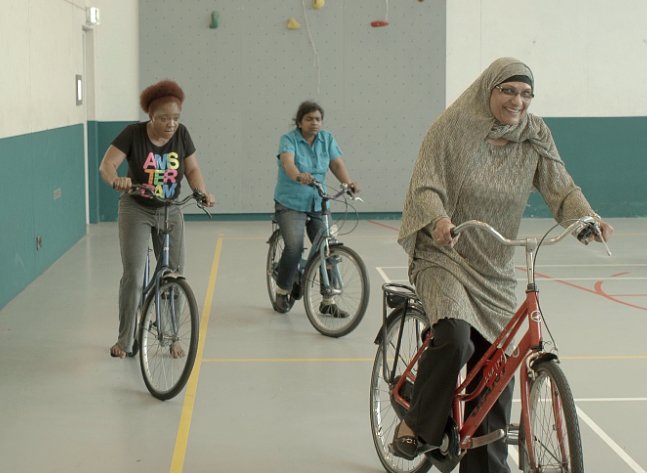
The next film was We are in Crisis, which, in the context of the festival, linked America's addiction to oil, the Dakota Access Pipeline, and other American environmental woes and injustices to the need for more bicycle-friendly infrastructure.
The last film in the group, Mama Agatha, took viewers from the streets of San Francisco to a bicycle school in Amsterdam. Here, Mama Agatha, a 60-year-old woman from Ghana, and others teach migrant women who have never ridden a bike how to cycle. The students start learning in a gymnasium and a parking structure. In the end, they bike with some confidence--and without helmets or special clothing--through the streets of Amsterdam.
Of course, biking in Amsterdam is a different story from biking in San Francisco. "When we look at people who bike in our cities, women make up a little more than half of our population, but only one-third of people who identify as bicycle commuters," said Brian Wiedenmeier, Executive Director of the San Francisco Bicycle Coalition. "In the U.S., it’s only about one quarter, which is better than the national average, but we have progress to make."
Increasing the number of women cyclists is something the SFBC is working on, but it requires understanding the needs of local communities. "Biking is almost kind of secondary, it’s really the community building--making women feel empowered," said Ana Vasudeo, Program Director for the SFBC, likening her approach to getting more people cycling to what Agatha did in the short film. Vasudeo, who also teaches cycling, said "it's about bringing together women to do something fun."
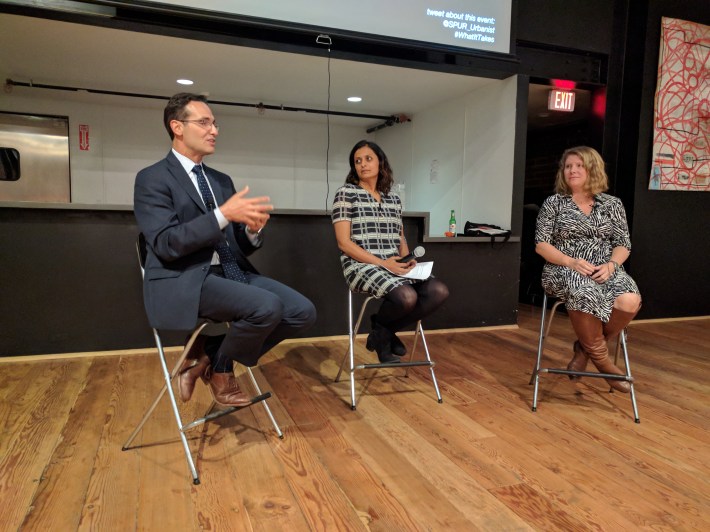
Just as Agatha in the movie had to consider the needs of the local migrant population in Amsterdam, Vasudeo has to consider local issues in communities where she teaches cycling. For example, in Chinatown, women typically have no place to store bikes indoors--so proper locking technique is part of the course. She said they have to address "anything that can be a perceived barrier and make sure that we know what their commute is like and adapt our education to that reality."
Of course, everyone agreed the primary barrier to cycling is poor infrastructure and the lack of safety, which is still the strongest deterrent to women and families riding bikes. "I have had friends who have gone from being bikers to not being bikers because they don’t feel safe with their child on their bikes," said Fisher.
The next group of films and panel discussion are tonight at 6 p.m, also in the Google Community Space.
